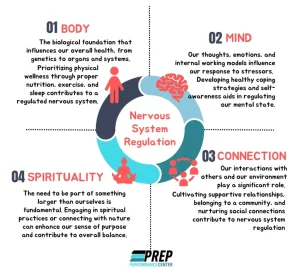
Mindfulness meditation is a wonderful way to improve the quality of your life. It can reduce anxiety and help you to sleep better. You will also be able to lower blood pressure and increase your confidence. In fact, this type of exercise can actually lower the chance of substance abuse.
Reduces anxiety
If you’ve ever wondered how to reduce anxiety, you may want to try mindfulness meditation. It’s a practice that involves focusing your attention on your breath, body sensations and noticing any thoughts that come to mind. As you continue to observe and become more aware of your feelings, you’ll notice your anxiety and worries lessening.
You can practice the mindfulness meditation techniques in several ways. One way is by simply sitting in a comfortable position and observing any thoughts that arise. Another is by imagining that you are experiencing anxiety. This can help you feel the feelings without having to analyze them.
The best way to practice the meditation is to keep a journal of your progress. This will give you an idea of how much the practice has helped you. After a few weeks, you should be able to see a decrease in your anxiety.
Lowers blood pressure
In a recent study, mindfulness meditation was found to lower blood pressure. Mindfulness is an approach to health and wellness that involves paying attention, being aware, and being present. Meditation is often associated with relaxation, but it can be a useful approach for stress as well.
High blood pressure is a serious medical condition. In fact, it is the leading cause of stroke and heart disease. Fortunately, it can be treated.
Researchers at Brown University have found that meditation can lower blood pressure. Those who participated in a program called Mindfulness-Based Blood Pressure Reduction were able to decrease their systolic pressure by 5 mm Hg. This is a significant reduction in a person’s blood pressure.
The Mindfulness Center in Brown’s School of Public Health developed a Mindfulness-Based Blood Pressure Reduction (MB-BP) program to help people reduce their stress and blood pressure. MB-BP includes eight sessions of two-and-a-half hours each week. These group sessions involve meditation, physical activity, and diet.
Improves sleep hygiene
Mindfulness meditation is a good way to improve sleep hygiene. Although it isn’t an exact science, it has been found to increase feelings of calmness and reduce stress.
The Journal of Applied Gerontology recently published a study that looked at the effect of mindfulness meditation on sleep. In this randomized clinical trial, participants with insomnia were randomly assigned to participate in either a six-week sleep hygiene course or a six-week mindfulness meditation class.
Researchers compared the effects of both groups on subjective and objective sleep measures. Results indicated that the mindfulness group benefited from a better quality of sleep, with better sleep duration and fewer disturbances.
The findings of this study suggest that a mindfulness-based program can help older adults improve their sleep. Studies have shown that a consistent routine can help regulate a person’s internal circadian rhythms.
Builds confidence
One of the greatest benefits of mindfulness meditation is its ability to improve confidence. By building your self-esteem, you can increase your performance and enjoyment in all aspects of your life. Whether you’re a parent, teacher, or worker, mindfulness can help you build your confidence and perform better.
A good start is to meditate each day. This will lower your stress levels, which will improve your overall health. Meditation has also been shown to increase the grey matter in your brain, which helps to regulate your emotions.
The best time to meditate is in the morning before work, as it’ll help you feel centered and clear of distractions. Alternatively, you can meditate before dinner, or at lunchtime.
While meditation is not going to help you boost your confidence immediately, it’ll show you how to do it. And, if you practice it regularly, you’ll be able to see your own confidence grow.
Lowers the chance of substance abuse
Mindfulness meditation is an intervention that helps to lower the risk of substance abuse. By developing awareness of the mind’s automatic response to stimuli, individuals can better identify and monitor their affective state and make more informed decisions. It can also reduce the risk of relapse.
Mindfulness-based interventions (MBIs) are often used in substance use disorder (SUD) treatment to reduce craving, stress, and emotional dysregulation. They aim to train individuals to be aware of their thoughts and emotions, and to create a supportive environment that promotes positive emotions. In addition, mindfulness training can modify neural mechanisms that drive substance abuse.
There is increasing interest in the role of emotion regulation in SUDs. In the present paper, we conducted a systematic review of studies using mindfulness for substance abuse.








